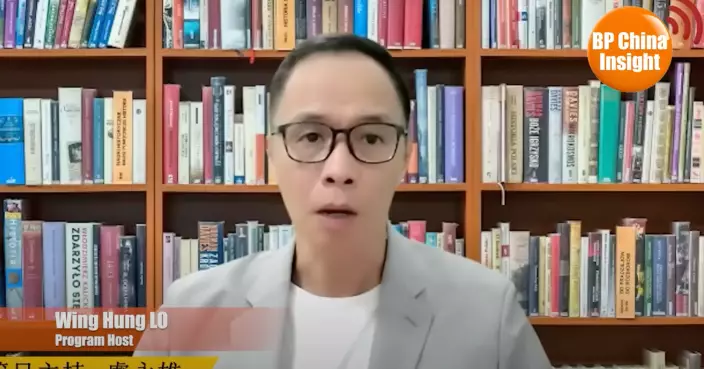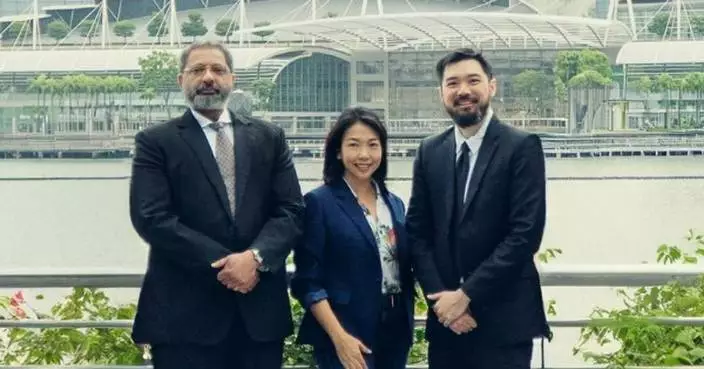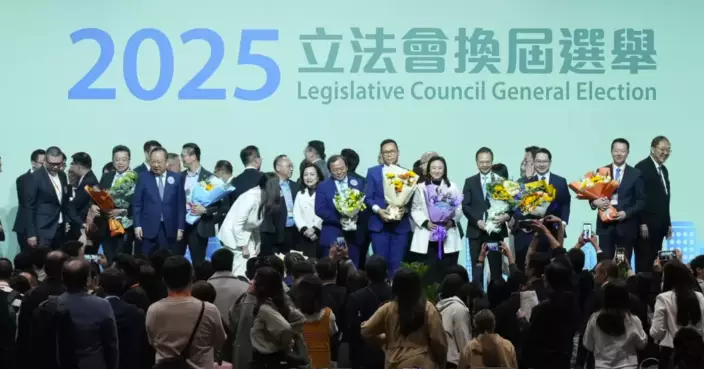Feature · News
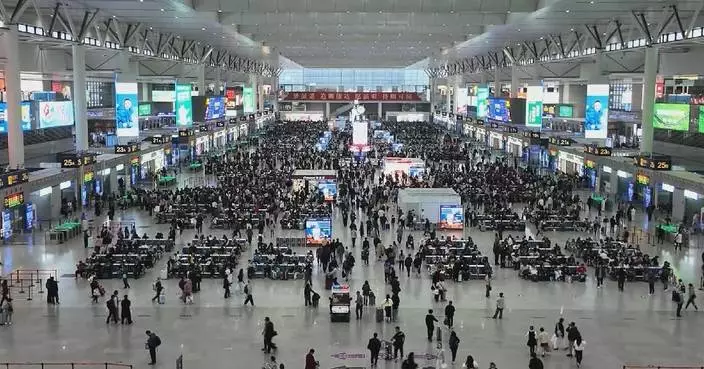
Cross-regional passenger trips in China expected to go up 21 percent on New Year's Day
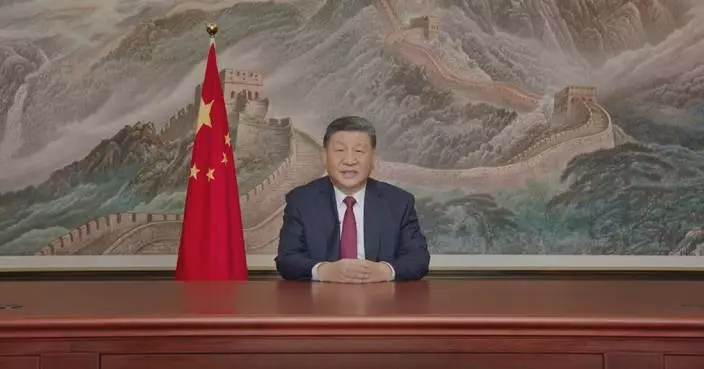
Xi urges promoting high-quality development to write new chapter of China's miracle in 2026

China's visa-free policy fuels surge in foreign entries

Over 40,000 people shot in U.S. in 2025: Gun Violence Archive
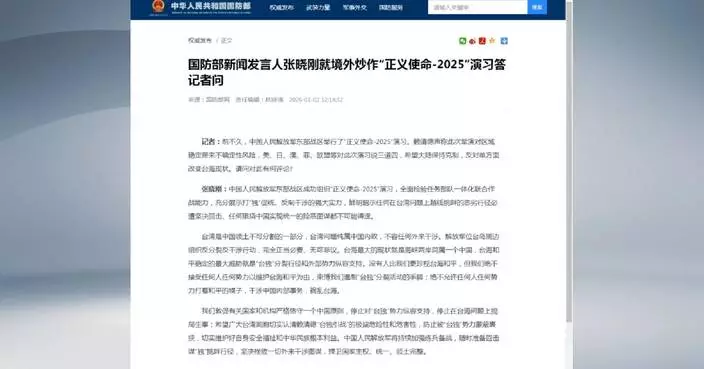
China condemns secessionism, external interference in name of cross-Strait peace

PLA Navy commissions new Type 052D destroyer

China welcomes 2026 with firework displays, drone shows

Cross-border e-commerce helps Chinese products reach more global consumers
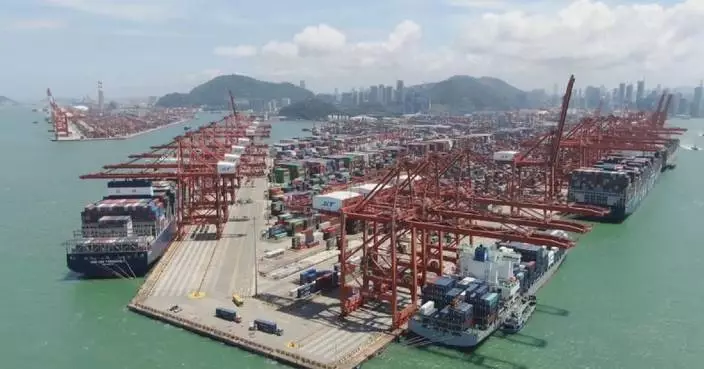
Hainan FTP's special customs operations implemented effectively with remarkable achievements

Visa-free access to Türkiye drives surge in Chinese outbound travel interest

Beijing expands government service hours to meet public demand

Russia says Ukrainian drone strike kills 24 in occupied Ukraine as Zelenskyy names aide to new role
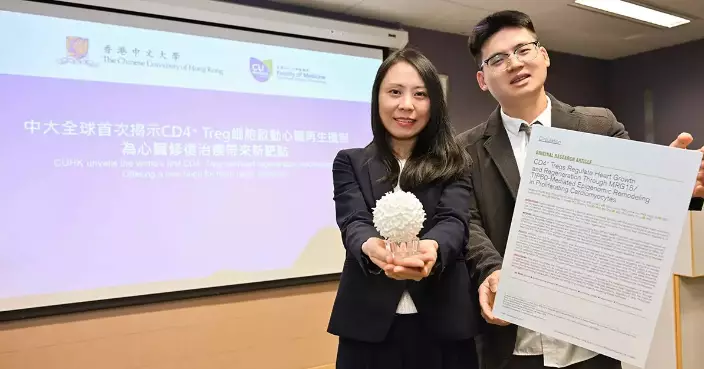
CUHK Unveils the World’s First CD4+ Treg Cell Heart Regeneration Mechanism Offering a New Target for Heart Repair Treatment

A 13-year-old Girl was Arrested for Slapping and Kicking a 15-year-old Girl at Kwun Tong Promenade

Hong Kong Reports No New Chikungunya Fever Cases, Continues Mosquito Control Efforts
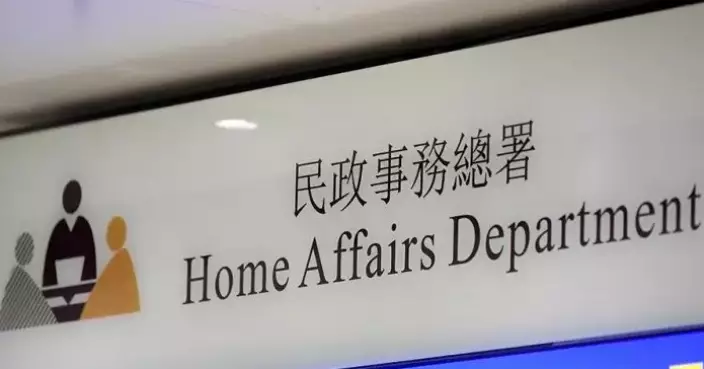
Temporary Cold Shelters Opened in Hong Kong for Those in Need Amid Cold Weather
China welcomes 2026 with firework displays, drone shows
Cross-border e-commerce helps Chinese products reach more global consumers
Hainan FTP's special customs operations implemented effectively with remarkable achievements
Visa-free access to Türkiye drives surge in Chinese outbound travel interest
Cross-regional passenger trips in China expected to go up 21 percent on New Year's Day
Xi urges promoting high-quality development to write new chapter of China's miracle in 2026
China's visa-free policy fuels surge in foreign entries
Over 40,000 people shot in U.S. in 2025: Gun Violence Archive
China condemns secessionism, external interference in name of cross-Strait peace
PLA Navy commissions new Type 052D destroyer
Beijing expands government service hours to meet public demand

Russia says Ukrainian drone strike kills 24 in occupied Ukraine as Zelenskyy names aide to new role

CUHK Unveils the World’s First CD4+ Treg Cell Heart Regeneration Mechanism Offering a New Target for Heart Repair Treatment

A 13-year-old Girl was Arrested for Slapping and Kicking a 15-year-old Girl at Kwun Tong Promenade

Hong Kong Reports No New Chikungunya Fever Cases, Continues Mosquito Control Efforts

Temporary Cold Shelters Opened in Hong Kong for Those in Need Amid Cold Weather
Feature·Bloggers

【Bastille Commentary】The West Buried Hong Kong — The City Had Other Plans

【What Say You?】Black Riots “comrades” Thought Ukraine Was Another “Resistance”—Then the Contract Hit

【Bastille Commentary】Green Nails? The Lie No Lawyer Would Touch

【What Say You?】How Jimmy Lai's Right-Hand Man Ran a Corporate Shakedown Operation

【Deep Blue】Trump's "Empire Strikes Back" Gambit: A Long Shot at Best

【What Say You?】Unfinished business With the “anti-Hong Kong triangle”?

Yemen’s separatists announce a constitution for an independent south in escalation of conflict
- FBI says it disrupted a New Year's Eve attack plan inspired by Islamic State group
- A fire in an Swiss ski resort bar has left about 40 people dead
- What to know about the Swiss Alpine bar fire that killed 40
- Grandmother and grandson burn to death in Gaza tent while cooking; Jolie visits Rafah crossing
- Trump and top Iranian officials exchange threats over protests roiling Iran
- Man fought off a mountain lion weeks before a suspected fatal Colorado attack
- Early gains mostly fade as Wall Street wobbles into 2026
- College football's Urban Meyer joins board of Florida college transformed by DeSantis
- Tesla loses title as world's biggest electric vehicle maker as sales fall for second year in a row

ROK President hopes to reduce misunderstandings with China during upcoming visit
- Iranian rial weakens sharply, triggering protests
- China will always be force for peace, stability and progress: Xi
- Xi promotes sound, stable development of relations with major countries in 2025
- Yemenis hope New Year will bring peace, stability
- Xi's Global Governance Initiative brings important global public good in 2025
- Xi outlines main directions for developing new quality productive forces
- Giant pandas draw crowds in Chongqing during New Year holiday
- Aden's pro-separatist officials reject Saudi flight restrictions, partially halt airport operations
- Snow transforms Mount Huashan into wonderland

Saks CEO steps down as luxury retailer struggles under heavy debt load
- Hong Kong Tech Exhibits Immense Potential at CES 2026 with 61 Tech Companies Ready for Global Markets
- BTL Hong Kong gathers 300 doctors and Linda Chung at "Mindful Beauty" Regional Summit in Phu Quoc in 2025
- ICONSIAM Elevates Thailand onto the World Countdown Map with "Amazing Thailand Countdown 2026"
- Greece cuts student population at universities by half after long study breaks are abolished
- Police in Finland arrest 2 members of cargo ship's crew in connection with damage to undersea cable
- Innolux Unveils Next-Generation Display Technology, Integrating MicroLED and N3D to Create a Cross-Domain Immersive Experience Ecosystem
- CUKTECH Launches Its First Desktop Super Fast Charging Station in Vietnam
- New Year Special: Bybit Daily Treasure Hunt Kicks Off 2026 with Six Weeks of Rewards
- The Greatest Meeting The Greatest: Roborock joins hands with Real Madrid in strategic partnership with innovation at the core

If someone's always late, is it time blindness, or are they just being rude?
- Flu is rising rapidly, driven by a new variant. Here's what to know
- Meta buys startup Manus in latest move to advance its artificial intelligence efforts
- The year's first meteor shower and supermoon clash in January skies
- What's inside Mexico's Popocatépetl volcano? Scientists obtain first 3D images
- 2025 was one of three hottest years on record, scientists say
- Trying to improve your health and wellness in 2026? Keep it simple
- The moon and sun figure big in the new year's lineup of cosmic wonders
- New York subway ends its MetroCard era and switches fully to tap-and-go fares
- Foods with healthy-sounding buzzwords could be hiding added sugar in plain sight

BTS announces March comeback date, putting an end to a nearly four-year hiatus
- Country singer Zach Bryan has married Samantha Leonard
- Broadway director Alex Timbers achieves a rare feat with 4 shows running simultaneously
- Photos of the slim alleyways of Pakistan's Mughal-era old Lahore city
- Rain soaks Rose Parade in California and snow squalls hit Midwest and Northeast on first day of 2026
- Bad Bunny's 'Debí Tirar Más Fotos' could make Grammy history
- Greece and Cyprus are welcoming 2026 without the bang
- Cities around the world welcome 2026 with thunderous fireworks and heightened security
- A Kenyan barber who wields a sharpened shovel thrives on Africa's social media craze
- Photos show the ancient art of Peking opera works hard to keep flourishing in the digital age

Cowboys look to win their 10th consecutive game against the Giants
- Osaka ill at United Cup in Perth but hopes to be OK for the Australian Open
- Texans need win over Indy, loss by Jags to win AFC South title
- Panthers, Buccaneers battle for NFC South title in matchup of teams going in opposite directions
- Seahawks and 49ers face off for NFC's top seed in high-stakes showdown
- Steelers and Ravens will decide the AFC North title in a high-stakes Week 18 showdown
- Ole Miss and breakthrough QB Chambliss advance to CFP Fiesta Bowl against Miami and blue chip Beck
- Browns, Bengals look to end season with momentum when they meet in the Battle of Ohio
- Bills have won 5 straight at home against Jets in closing the regular season by hosting New York
- Anthony Joshua’s driver charged after deadly crash in Nigeria
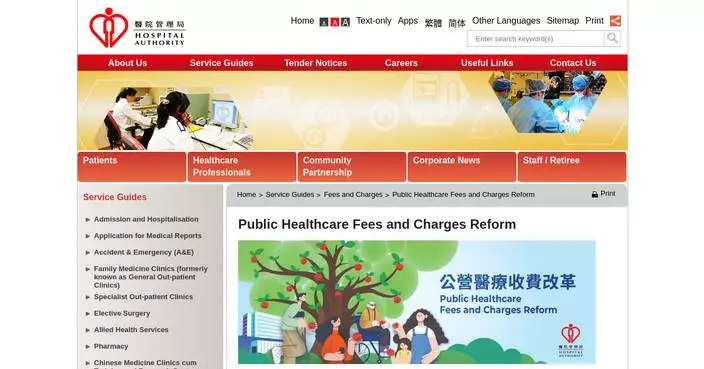
Public Hospitals Operate Smoothly Amid New Healthcare Fees and Charges Reform
- Hong Kong Customs Seizes 4 Kilograms of Cocaine Worth $3.1 Million from Air Passenger
- HKMA Warns Public About Bank-Related Fraud and Phishing Scams
- Open Auctions for 464 Public Market Stalls Scheduled in January, Rentals Available from January 23
- Members of the Eighth Term Legislative Council are Ready to Take Office
- Hong Kong International Open Chess Championship Concludes Successfully, China and Mongolia Claimed Victory in Both Categories
- Retail Sales in November 2025 Rise 6.5% Year-on-Year, Driven by Strong Online Sales Growth
- EMSD Releases Comprehensive Review of CLP Power Supply System, Proposes Key Recommendations for Improvement
- EPD Releases Updated Water Quality Ratings for Year-Round Swimming Beaches
- Linda So appointed Director of Northern Metropolis Co-ordination Office, effective January 5, 2026

Hiking event held at northwest China's Jiayu Pass to welcome arrival of New Year
- Ice, snow bring spectacular views to visitors across China
- Vietnamese vehicles eligible for fast-track inspection through border pass with China
- Special Train service facilitates cross-region football match in central China
- Russia condemns Ukrainian drone attack that leads to civilian casualties
- Major airports in Hainan see surge in passenger flow on New Year's Day
- China's New Year film season box office exceeds 500 million yuan
- Macao sees record-breaking tourist flow on first day of New Year
- China sees record oil output in 2025
- Hong Kong stocks close higher Friday
Category · News

Cowboys look to win their 10th consecutive game against the Giants

Yemen’s separatists announce a constitution for an independent south in escalation of conflict

FBI says it disrupted a New Year's Eve attack plan inspired by Islamic State group

Osaka ill at United Cup in Perth but hopes to be OK for the Australian Open

Texans need win over Indy, loss by Jags to win AFC South title

BTS announces March comeback date, putting an end to a nearly four-year hiatus

A fire in an Swiss ski resort bar has left about 40 people dead

What to know about the Swiss Alpine bar fire that killed 40

Grandmother and grandson burn to death in Gaza tent while cooking; Jolie visits Rafah crossing

Trump and top Iranian officials exchange threats over protests roiling Iran

Man fought off a mountain lion weeks before a suspected fatal Colorado attack

Early gains mostly fade as Wall Street wobbles into 2026

Panthers, Buccaneers battle for NFC South title in matchup of teams going in opposite directions

College football's Urban Meyer joins board of Florida college transformed by DeSantis

Seahawks and 49ers face off for NFC's top seed in high-stakes showdown

Country singer Zach Bryan has married Samantha Leonard

Steelers and Ravens will decide the AFC North title in a high-stakes Week 18 showdown

Ole Miss and breakthrough QB Chambliss advance to CFP Fiesta Bowl against Miami and blue chip Beck

Browns, Bengals look to end season with momentum when they meet in the Battle of Ohio

Tesla loses title as world's biggest electric vehicle maker as sales fall for second year in a row

Bills have won 5 straight at home against Jets in closing the regular season by hosting New York

Anthony Joshua’s driver charged after deadly crash in Nigeria

TransLink Selects Vancouver-Based Spare to Modernize HandyDART Across Metro Vancouver

Zelenskyy names Ukraine's head of military intelligence as his new chief of staff

Giants can still get the No. 1 pick if they lose to the Cowboys and Raiders beat Chiefs

Rhode Island firefighters rescue a yellow Lab from an icy pond on New Year's Day

Rams need a playoff tune-up, so their starters will roll in the finale against freefalling Cardinals

Top draft pick could be on the line for Raiders when they host the Chiefs

Crystal Palace completes signing of Wales forward Brennan Johnson from Tottenham

Saks CEO steps down as luxury retailer struggles under heavy debt load

Investigation continues into the New Year's Eve bar fire in Switzerland, in photos

How one Swiss hospital coped with the injured from the Alpine bar fire

US and Canada have Milan Olympic injury replacements standing by

Earthquake with a preliminary magnitude of 6.5 rattles southern and central Mexico
ROK President hopes to reduce misunderstandings with China during upcoming visit

Broadway director Alex Timbers achieves a rare feat with 4 shows running simultaneously

Public Hospitals Operate Smoothly Amid New Healthcare Fees and Charges Reform

Olympic medalist Katharina Liensberger suffers serious knee injuries in training crash

US hockey picks 4 Nations-heavy roster for the Winter Olympics, adding Keller, Thompson and Jones

Photos of the slim alleyways of Pakistan's Mughal-era old Lahore city

Trump wants to overhaul the 'president's golf course.' He hasn't played there yet
Iranian rial weakens sharply, triggering protests

Hong Kong Tech Exhibits Immense Potential at CES 2026 with 61 Tech Companies Ready for Global Markets

Sweden picks Wallstedt, Gustavsson and Markstrom as goalies for the Winter Olympics

Finland unveils roster for the Winter Olympics and leaves off injured captain Aleksander Barkov

A tall building under construction collapses in Nairobi, with 4 believed to be trapped

BTL Hong Kong gathers 300 doctors and Linda Chung at "Mindful Beauty" Regional Summit in Phu Quoc in 2025

Chelsea's interim coach says players 'really focused' on Man City after Maresca exit
China will always be force for peace, stability and progress: Xi
Xi promotes sound, stable development of relations with major countries in 2025

A Symbol of Hope for America’s 250th: American Eagle Foundation Announces Birth of First Eaglet on National Anniversary

FINAL DEADLINE ALERT: Faruqi & Faruqi, LLP Announces that CarMax Investors Have Opportunity to Lead Class Action Lawsuit

GE Profile™ Unveils Game-Changing Smart Refrigerator with Kitchen Assistant™, Revolutionizing Grocery Shopping and Meal Planning

ICONSIAM Elevates Thailand onto the World Countdown Map with "Amazing Thailand Countdown 2026"

The top photos of the week by AP photojournalists
Yemenis hope New Year will bring peace, stability
Xi's Global Governance Initiative brings important global public good in 2025
Xi outlines main directions for developing new quality productive forces

FHLBank Chicago Expands Community Advance for 2026 to Accelerate Affordable Housing and Economic Development

Fireworks dazzled Rio's sky, and more top photos this week in Latin America and the Caribbean

Hong Kong Customs Seizes 4 Kilograms of Cocaine Worth $3.1 Million from Air Passenger

Bournemouth's Antoine Semenyo to play against Arsenal amid transfer interest from Man City

Greece cuts student population at universities by half after long study breaks are abolished

Pakistan sentences journalists, YouTubers and ex-military officers to life over inciting violence

Police in Finland arrest 2 members of cargo ship's crew in connection with damage to undersea cable

Cinemark and Lowe’s Build Upon Fan-Favorite Bring Your Own Bucket Event With Two-Day National Popcorn Day Celebration in U.S. Theaters

Kim’s daughter visits family mausoleum, promoting her potential status as heir in North Korea

AC Milan completes loan signing of Niclas Füllkrug on opening day of Italian transfer window

Innolux Unveils Next-Generation Display Technology, Integrating MicroLED and N3D to Create a Cross-Domain Immersive Experience Ecosystem

CUKTECH Launches Its First Desktop Super Fast Charging Station in Vietnam

Fans bring life to the Africa Cup of Nations, in photos
Giant pandas draw crowds in Chongqing during New Year holiday

New Year Special: Bybit Daily Treasure Hunt Kicks Off 2026 with Six Weeks of Rewards

Pinnacle and Synovus Complete Merger to Become Regional Bank Growth Champion

London City Lionesses hire Eder Maestre of Spain as head coach

The Greatest Meeting The Greatest: Roborock joins hands with Real Madrid in strategic partnership with innovation at the core
Aden's pro-separatist officials reject Saudi flight restrictions, partially halt airport operations

A Year with KuCoin: Unlocking Traders' Unique Journey of Trust, Redefining What Traders Gain from a Year of Participation
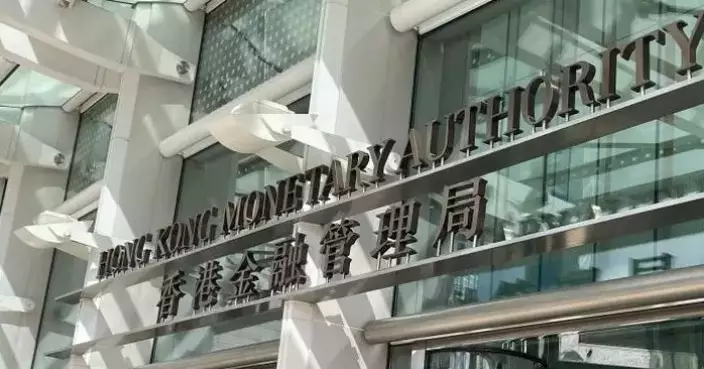
HKMA Warns Public About Bank-Related Fraud and Phishing Scams
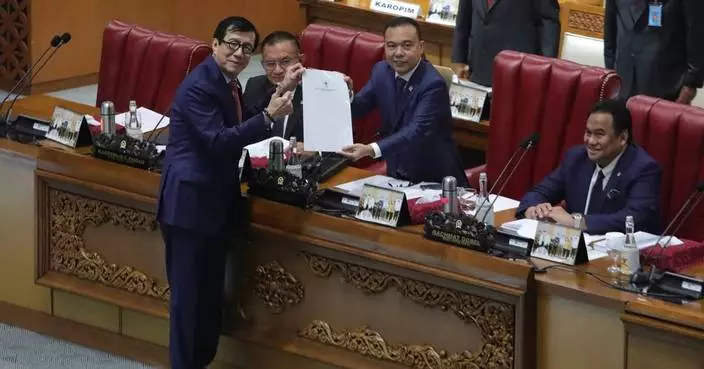
Indonesia’s new penal code takes effect, marking historic break with colonial law
Snow transforms Mount Huashan into wonderland

Ittefaq Salt Marks Major Milestone with Expansion into Five Himalayan Pink Salt Mining Areas
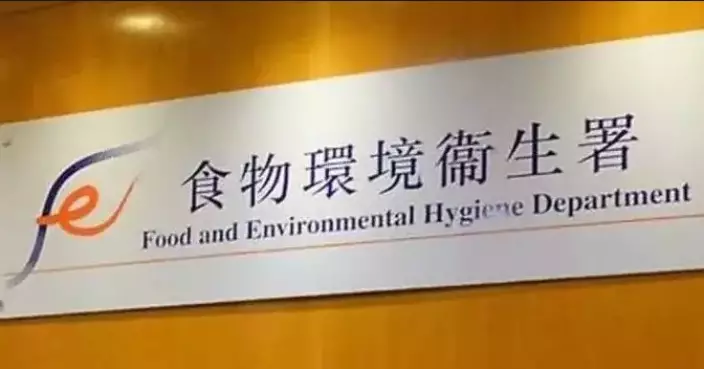
Open Auctions for 464 Public Market Stalls Scheduled in January, Rentals Available from January 23
Hiking event held at northwest China's Jiayu Pass to welcome arrival of New Year







